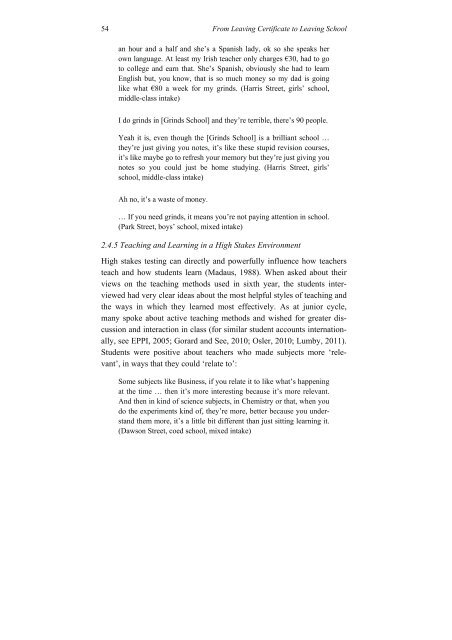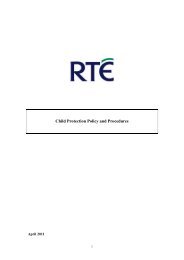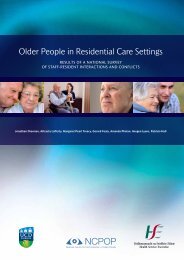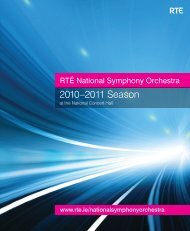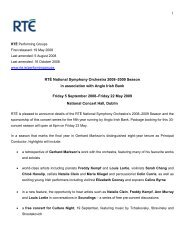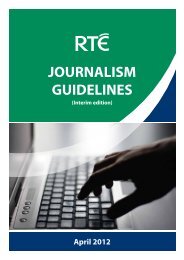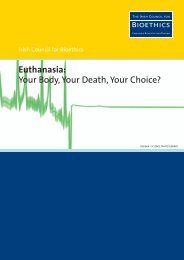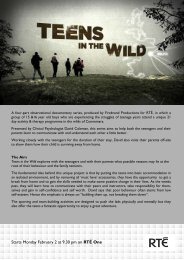From Leaving CertiFiCate to Leaving SChooL a Longitudinal Study ...
From Leaving CertiFiCate to Leaving SChooL a Longitudinal Study ...
From Leaving CertiFiCate to Leaving SChooL a Longitudinal Study ...
Create successful ePaper yourself
Turn your PDF publications into a flip-book with our unique Google optimized e-Paper software.
54<br />
<strong>From</strong> <strong>Leaving</strong> Certificate <strong>to</strong> <strong>Leaving</strong> School<br />
an hour and a half and she’s a Spanish lady, ok so she speaks her<br />
own language. At least my Irish teacher only charges €30, had <strong>to</strong> go<br />
<strong>to</strong> college and earn that. She’s Spanish, obviously she had <strong>to</strong> learn<br />
English but, you know, that is so much money so my dad is going<br />
like what €80 a week for my grinds. (Harris Street, girls’ school,<br />
middle-class intake)<br />
I do grinds in [Grinds School] and they’re terrible, there’s 90 people.<br />
Yeah it is, even though the [Grinds School] is a brilliant school …<br />
they’re just giving you notes, it’s like these stupid revision courses,<br />
it’s like maybe go <strong>to</strong> refresh your memory but they’re just giving you<br />
notes so you could just be home studying. (Harris Street, girls’<br />
school, middle-class intake)<br />
Ah no, it’s a waste of money.<br />
… If you need grinds, it means you’re not paying attention in school.<br />
(Park Street, boys’ school, mixed intake)<br />
2.4.5 Teaching and Learning in a High Stakes Environment<br />
High stakes testing can directly and powerfully influence how teachers<br />
teach and how students learn (Madaus, 1988). When asked about their<br />
views on the teaching methods used in sixth year, the students interviewed<br />
had very clear ideas about the most helpful styles of teaching and<br />
the ways in which they learned most effectively. As at junior cycle,<br />
many spoke about active teaching methods and wished for greater discussion<br />
and interaction in class (for similar student accounts internationally,<br />
see EPPI, 2005; Gorard and See, 2010; Osler, 2010; Lumby, 2011).<br />
Students were positive about teachers who made subjects more ‘relevant’,<br />
in ways that they could ‘relate <strong>to</strong>’:<br />
Some subjects like Business, if you relate it <strong>to</strong> like what’s happening<br />
at the time … then it’s more interesting because it’s more relevant.<br />
And then in kind of science subjects, in Chemistry or that, when you<br />
do the experiments kind of, they’re more, better because you understand<br />
them more, it’s a little bit different than just sitting learning it.<br />
(Dawson Street, coed school, mixed intake)


